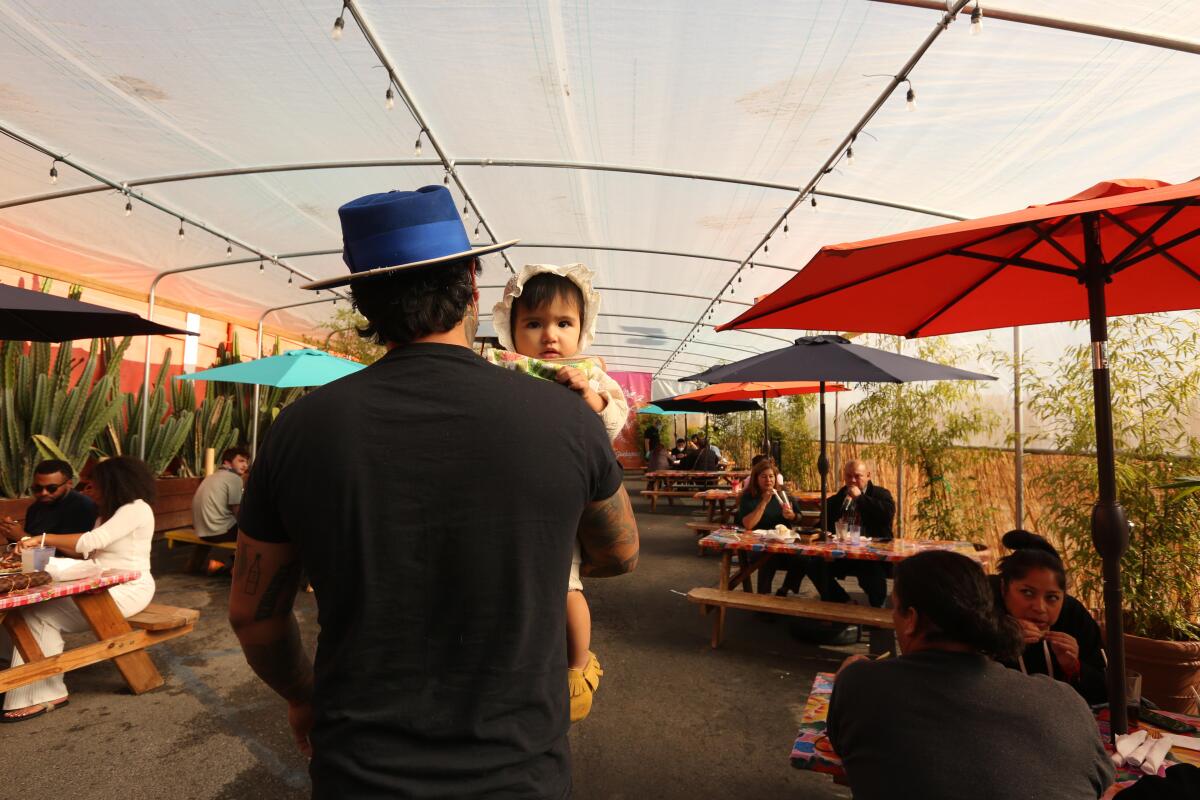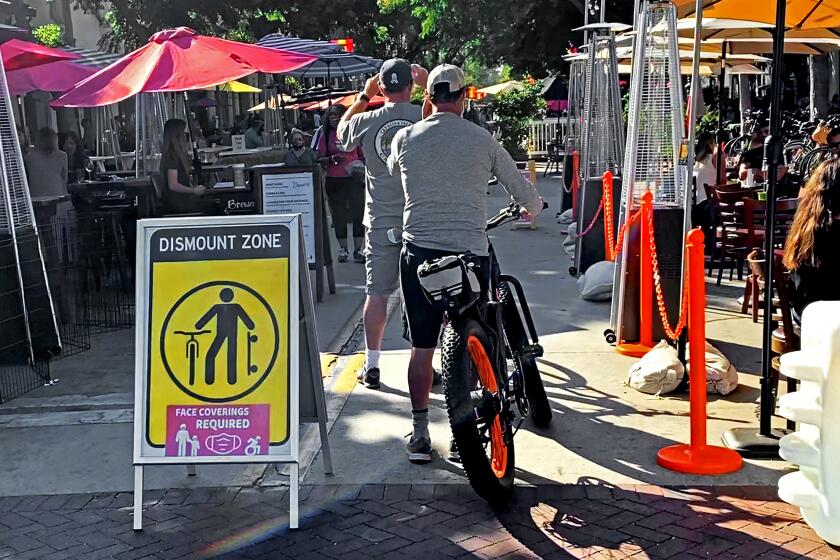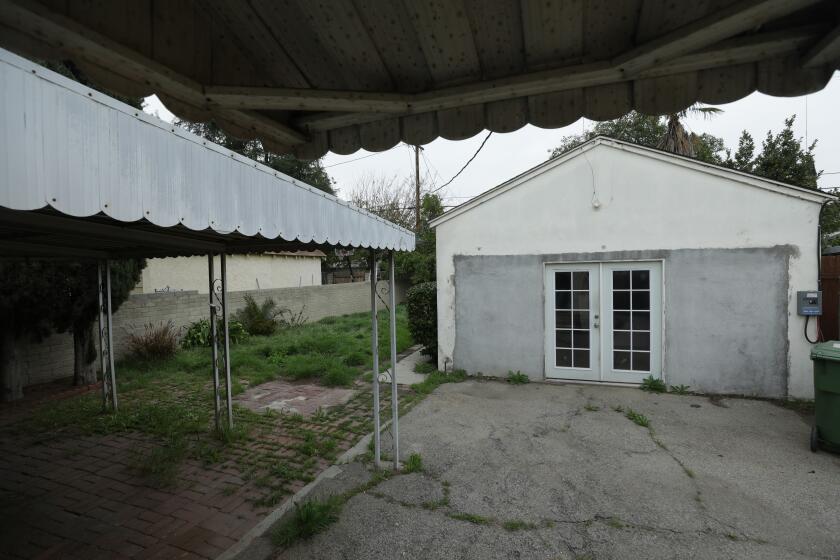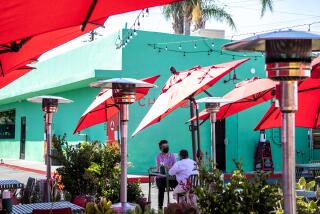Editorial: C’mon, Los Angeles. Make it really easy for restaurants to keep alfresco dining

- Share via
One of the few bright spots of the pandemic was the boom in alfresco dining. Los Angeles, like many cities, waived regulations so more than 2,500 businesses could turn sidewalks and parking spaces into outdoor patios where people could eat, drink and socialize safely with space and fresh air.
Now with the COVID-19 emergency winding down, city officials are trying to figure out how to transform this pandemic program into a permanent fixture. But after seeing a Planning Department proposal for a permanent alfresco ordinance that included expensive and time-consuming requirements, restaurant owners worry L.A. will revert to a time when its red tape and fees discouraged outdoor dining.
That would be a shame. The pandemic showed what’s possible when the city relaxes regulations to allow creative use of public and private space. Why go backward now? Mayor Karen Bass and the City Council need to provide clear support and guidance to city departments to ensure L.A.’s outdoor dining boom continues.
During the pandemic, cities have turned lightly used streets into pedestrian thoroughfares and parking lots into dining areas. Let’s keep them.
In a city notorious among entrepreneurs for its crushing bureaucracy and hefty fees, the L.A. Al Fresco program was an amazing transformation. Restaurant owners could get a free permit in 20 minutes to set up tables on the sidewalk, in the street or in a parking lot. In some cases, the city even provided traffic barriers, planters and umbrellas at no cost. Parking requirements, space limitations, restrictions on serving alcohol outdoors and many other rules were waived.
The program has been an overwhelming success. It allowed restaurants to stay in business, and even expand, which is good for job creation and the local economy. Diners love having the option to eat outdoors, according to the city survey on the program. And while there were some complaints about the loss of street parking — this is still car-loving Los Angeles — more respondents praised the program for making commercial streets more vibrant and inviting.
L.A. made the magic happen by ignoring the vast majority of the city’s regulations and fees under the auspices of local and state emergency orders. Those orders have expired or will expire soon — and so will the temporary outdoor dining permits. The city has to develop a permanent program. In the meantime, restaurants will be allowed to keep their outdoor dining spaces.
There’s a vast informal economy of unpermitted homes in L.A. and some leaders want to make it easier to bring those units into compliance.
But, of course, it’s complicated. Before the pandemic L.A. Al Fresco program, restaurants had to navigate multiple city departments and comply with time-consuming and expensive requirements to set up outdoor tables. Sidewalk dining is permitted by the city’s Bureau of Engineering. Public parking spaces are the purview of the Department of Transportation. And private parking lots are regulated by the city’s zoning code, which is the responsibility of the Department of Planning. There are fire and safety codes to comply with and permits for serving alcohol.
The city has to figure out which regulations are essential — like ensuring disabled people can move easily around sidewalk diners — and which can be relaxed — like requirements that restaurants provide a certain number of parking spots.
The goal, according to the mayor’s office, is to make the permanent program as easy to use as the pandemic one. The mayor has created a working group of city departments to coordinate and develop a one-stop shop for businesses to file for an outdoor dining permit. And the Planning Department, after getting an earful from restaurant owners about the draft ordinance, is looking at ways to streamline the regulations even more. At least L.A. is trying to preserve its outdoor dining installations. Some cities, including Long Beach, have told restaurateurs to tear down their parklets and apply for new permits.
Every politician in City Hall can wax poetic about their support for small businesses, but they rarely take action to remove the smothering thicket of regulations that may not be necessary. The L.A. Al Fresco program proved that a little flexibility from City Hall can benefit businesses and the community.
More to Read
A cure for the common opinion
Get thought-provoking perspectives with our weekly newsletter.
You may occasionally receive promotional content from the Los Angeles Times.












